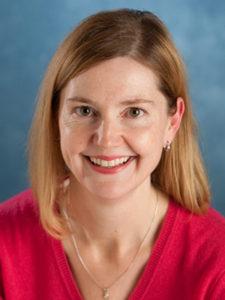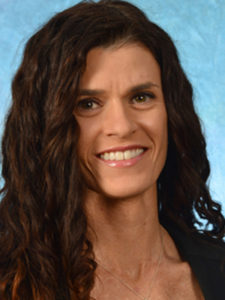
The programming for rheumatology health professionals has been designed to provide up-to-date information related to improving patient care and research, as well as invaluable networking opportunities with rheumatology specialists from around the world.
“Professionals of many disciplines come together for the ACR/ARHP Annual Meeting. In addition to rheumatologists, the ARHP consists of many disciplines, such as nurses, physician assistants, pharmacists, physical and occupational therapists, and exercise physiologists,” said Susan Murphy, ScD, OTR, Associate Professor in the Physical Medicine and Rehabilitation Department at the University of Michigan and a Research Health Science Specialist at the Veterans Affairs Ann Arbor Health Care System.
“Not only does the meeting provide for great networking outside of a specific discipline, the educational offerings and research sessions are crosscutting, which allows the focus to be on clients and their issues and how each discipline contributes to improved outcomes,” she said. “The meeting allows attendees to gain new skills and integrate evidence-based research into their practice.”

The Annual Meeting is particularly valuable for keeping up with the latest research findings and learning about research opportunities, according to Rebecca (Becki) Cleveland, PhD, Assistant Professor at the University of North Carolina and a member of the Methodology Core for the NIAMS-funded Multidisciplinary Clinical Research Center at the UNC Thurston Arthritis Research Center in Chapel Hill.
“Rheumatology research is diverse and moves at a fast pace, so attending the ACR/ARHP Annual Meeting is a great way for researchers to stay up to date on what is happening in all aspects of rheumatology,” Dr. Cleveland said.
Among the sessions she recommends for researchers is the joint ACR/ARHP session Innovative Statistics: Joint Modeling of Time-to-Event & Longitudinal Data (4:30 pm Sunday, October 21).
“This session is aimed at addressing a common problem in longitudinal studies of needing to assess not only the likelihood of an event occurrence, but also the importance of its timing, i.e., time-to-event,” Dr. Cleveland said. “The speakers will present methods to efficiently combine these approaches, providing relevant examples and insightful interpretation.”
Also for researchers, Dr. Murphy recommends Randomized Trials for Clinical Researchers 101: Design & Analysis Overview (1:00 pm Sunday, October 21).
“This is a combined ACR/ARHP session and is important information in the era of changing reporting standards in randomized clinical trials,” she said. “I would also recommend checking out the session Get Smart: Mobile & Wearable Technology in Rheumatology (9:00 am Monday, October 22) for information on the latest devices and guidance for how to integrate them into research studies and in clinical practice.”
For rheumatology health professionals, Dr. Cleveland recommends OA Management: Non-Pharmacologic, Pharmacologic & Controversial Approaches (4:30 pm Monday, October 22), which will comprehensively outline the current management approaches and guidelines of osteoarthritis, and the inaugural Radiology Bootcamp (11:00 am Tuesday, October 23).
“The Radiology Bootcamp is an exciting new session this year,” Dr. Cleveland said. “It is designed specifically for health professionals to introduce them to the basics of musculoskeletal imaging, including different types of imaging and how they can be used to diagnose and treat patients.”
With so many educational sessions to choose from, both Dr. Cleveland and Dr. Murphy encourage attendees to carefully study the program to find the topics that most interest them and to make to leave time in their schedules to network with colleagues.
“I would definitely take advantage of the opportunities to network by attending at least one networking event,” Dr. Murphy said. “For those attending the meeting for the first time, for example, the ACR/ARHP Annual Meeting First-Timers Orientation (7:30 am Sunday, October 21) is a great chance to meet others and get tips for navigating the meeting. The poster sessions are also great to attend to talk to people one on one about studies and interact with other attendees.”
